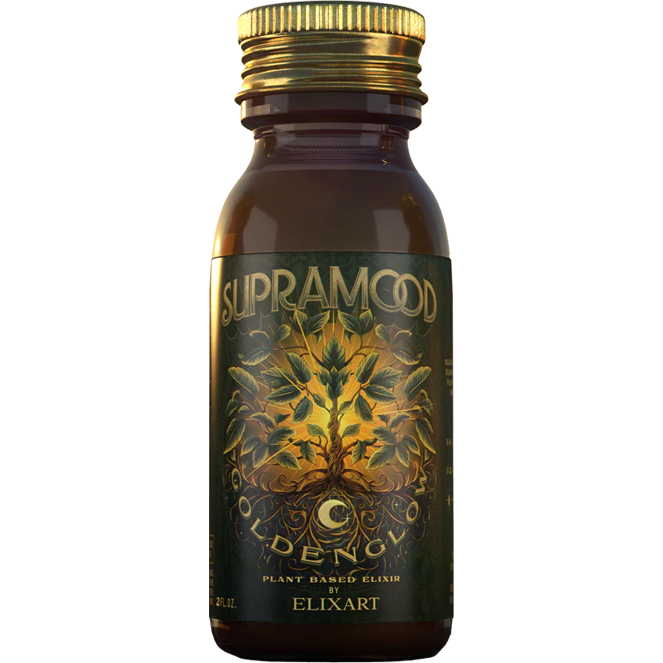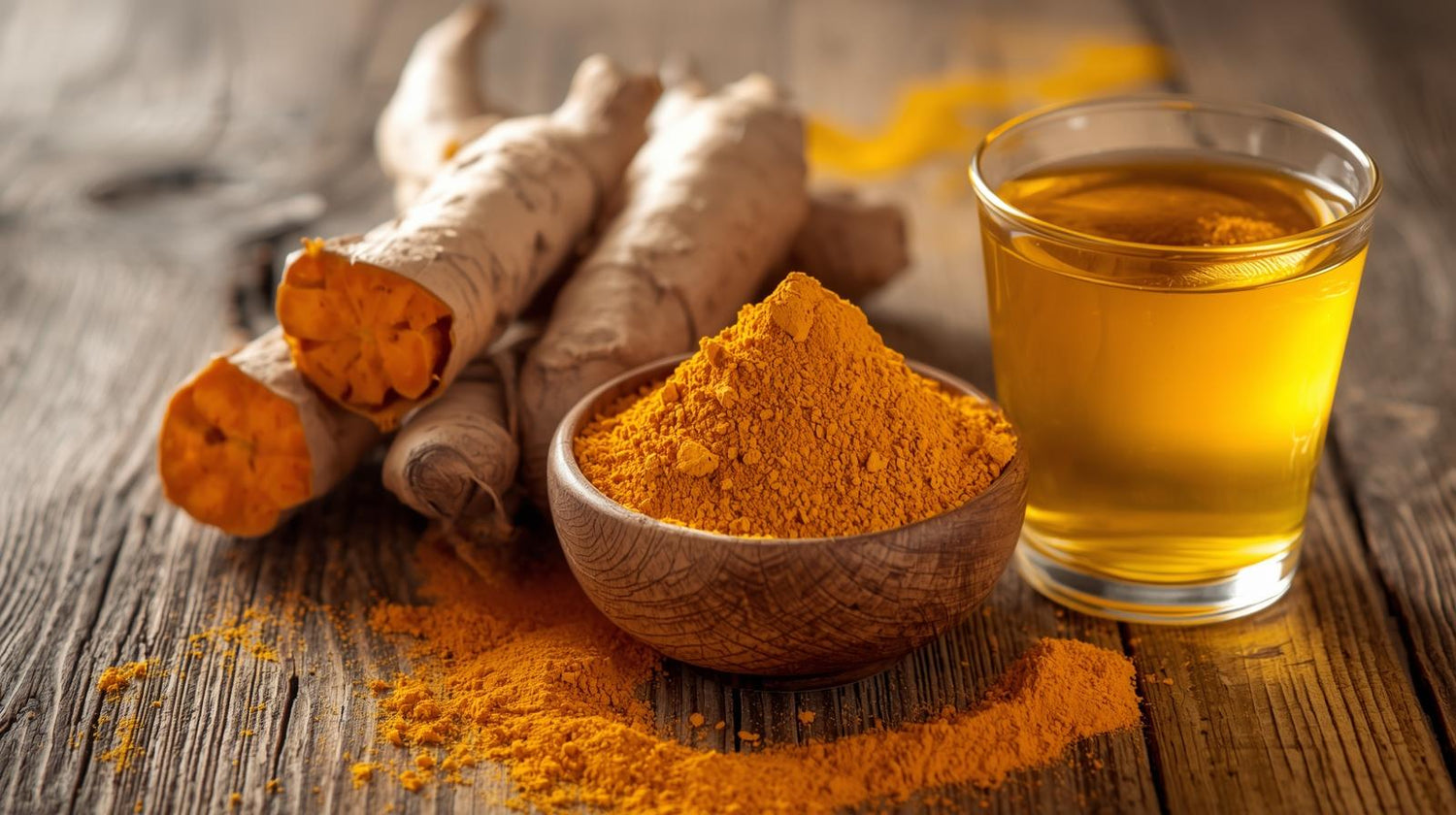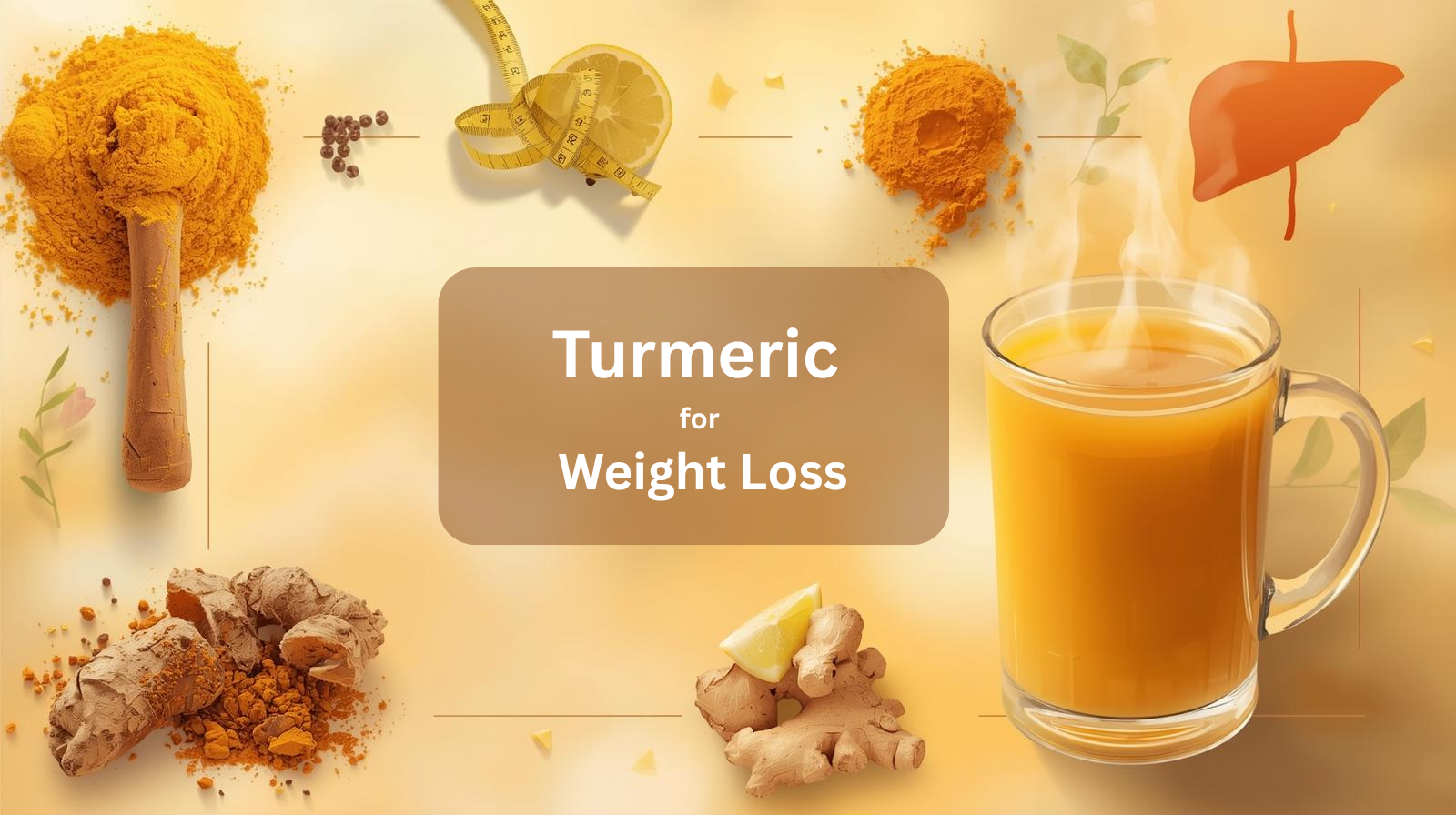Table of Contents
- Introduction to Turmeric
- Health Benefits & Body Impact
- Safe Usage & Daily Consumption
- Forms & Variations of Turmeric
- Taste & Experience
- Conclusion
- Frequently Asked Questions (FAQs)
Introduction to Turmeric
Step into a kitchen anywhere in South Asia, and you’ll likely find a jar filled with a vivid golden spice. That spice is turmeric. For centuries, it has shaped cooking, medicine, and even cultural rituals. Today, science shines new light on what ancient traditions already knew: turmeric carries power beyond its color. You can read more about its history and impact in this detailed guide on turmeric as the golden ingredient transforming wellness and nutrition.
At its core, turmeric is the root of the plant Curcuma longa. The part most people recognize is the dried and ground version, turmeric powder, but the fresh turmeric root looks like a small, knobbly cousin of ginger. Inside, its bright orange flesh carries a compound called curcumin, the main ingredient that gives turmeric its deep hue and healing properties.
While turmeric is not a vitamin itself, it does contain vitamin C, vitamin B6, and minerals like manganese and iron. These nutrients help explain why it supports the body in multiple ways, from immune health to energy balance.
Key Points of This Blog
- Turmeric is more than a spice; it is a root rich in curcumin, vitamins, and minerals.
- Its benefits range from reducing inflammation to supporting digestion and mood.
- Daily use of turmeric can be safe and effective if done properly.
- You can find turmeric in many forms: powder, capsules, and even liquid turmeric.
- The taste varies: earthy, slightly bitter, and sometimes peppery.
- We’ll also answer common questions about dosage, safety, and everyday use.
Health Benefits & Body Impact
What does turmeric do for your body? The answer lies in how curcumin interacts with your cells. Research shows that curcumin reduces inflammation, a driver of many chronic conditions like arthritis and heart disease. When people search for the best turmeric powder for inflammation, they are often looking for a blend high in curcumin content.
 But turmeric doesn’t stop there. It influences digestion by stimulating bile production, making it easier to break down fats. It supports brain health by encouraging the release of chemicals linked to memory and mood. People sometimes call turmeric “nature’s multitasker” because it touches so many systems at once.
But turmeric doesn’t stop there. It influences digestion by stimulating bile production, making it easier to break down fats. It supports brain health by encouraging the release of chemicals linked to memory and mood. People sometimes call turmeric “nature’s multitasker” because it touches so many systems at once.
So, what are turmeric vitamins good for? The vitamins and minerals in turmeric, though small in quantity, work with curcumin to support immunity, bone health, and energy levels.
And how long does it take for turmeric to work? Studies suggest consistent use over 4-8 weeks brings noticeable effects, particularly for joint stiffness and inflammation. Unlike quick fixes, turmeric builds its impact gradually.
Safe Usage & Daily Consumption
One question comes up often: Is it safe to take turmeric every day? For most healthy adults, yes. The key lies in moderation. Experts suggest doses between 500-1,000 mg of curcumin daily, usually taken in divided amounts. Exceeding that may upset digestion.
 What is the best way to take turmeric? Pairing turmeric with black pepper improves absorption. Piperine, found in black pepper, increases curcumin’s bioavailability by up to 2000%. Adding turmeric to meals with healthy fats, like olive oil or coconut oil, also helps.
What is the best way to take turmeric? Pairing turmeric with black pepper improves absorption. Piperine, found in black pepper, increases curcumin’s bioavailability by up to 2000%. Adding turmeric to meals with healthy fats, like olive oil or coconut oil, also helps.
And what is the best time to drink turmeric? Many find evening helpful, especially as turmeric tea or warm milk. The soothing effect may relax the body and reduce inflammation overnight. Others prefer mornings, combining it with lemon and ginger for a refreshing start.
Forms & Variations of Turmeric
Turmeric comes in many forms, and choosing one depends on lifestyle and health goals.
The most familiar is turmeric powder, a staple in cooking. Fresh turmeric root offers a more pungent flavor and can be sliced or grated into recipes. Capsules and tablets provide convenience for those who prefer supplements.
 What is the best form of turmeric to take? For inflammation, high-quality capsules or powders with added black pepper extract often deliver the best results. For culinary purposes, powder remains the most versatile.
What is the best form of turmeric to take? For inflammation, high-quality capsules or powders with added black pepper extract often deliver the best results. For culinary purposes, powder remains the most versatile.
And what is turmeric in liquid form? Liquid turmeric is an extract suspended in a solution, designed for faster absorption. Some people prefer drops in water or smoothies because they bypass the digestive process and act more quickly in the bloodstream.
Taste & Experience
Anyone who has sipped turmeric tea knows its unique taste. So, what does turmeric taste like? Fresh root is earthy, warm, and slightly bitter, with a peppery undertone. When dried into powder, the bitterness softens, leaving a more balanced profile that complements savory dishes.
And what does turmeric tea taste like? On its own, it’s earthy with a mild bitterness. When blended with ginger, cinnamon, or honey, it turns soothing, almost comforting. That’s why turmeric tea often becomes a bedtime ritual.
GoldenGlow Elixir by Supramood
Supramood GoldenGlow is an excellent choice. Made with natural turmeric roots and carefully crafted to maximize curcumin’s bioavailability, this elixir combines tradition with modern wellness science.
 Unlike standard powders, GoldenGlow Elixir is designed for easy absorption and a smoother experience, supporting joint health, digestion, and overall vitality. With its pure ingredients and natural formulation, it offers a convenient way to make turmeric part of your daily ritual while enjoying its golden benefits for body and mind. It truly stands out as a 7-Oh free product and one of the best turmeric supplements available.
Unlike standard powders, GoldenGlow Elixir is designed for easy absorption and a smoother experience, supporting joint health, digestion, and overall vitality. With its pure ingredients and natural formulation, it offers a convenient way to make turmeric part of your daily ritual while enjoying its golden benefits for body and mind. It truly stands out as a 7-Oh free product and one of the best turmeric supplements available.
Conclusion
Turmeric has journeyed from ancient traditions to modern wellness without losing its golden glow. Whether stirred into curries, brewed as tea, or taken in capsules, this remarkable root continues to prove its worth as a daily ally for health. At its heart, turmeric is the root of Curcuma longa, packed with curcumin, vitamins, and minerals that bring balance to the body.
Its impact is wide-ranging. Regular use of turmeric reduces inflammation, strengthens digestion, uplifts mood, and supports the immune system. Many people find that making it part of their everyday routine, especially when paired with black pepper and healthy fats, unlocks its full potential. The spice is versatile too; from fresh root to turmeric powder, from capsules to liquid extracts, each form offers unique ways to enjoy its benefits. Even the taste reflects its character, with an earthy warmth and a hint of bitterness that, when softened with honey or spices, becomes soothing and comforting.
So when someone asks about the best turmeric powder for inflammation, they’re really searching for a way to make this golden spice part of their daily rhythm. The answer lies in choosing high-quality turmeric, using it consistently, and respecting its natural synergy with other foods. Far more than a seasoning, turmeric is a companion for long-term wellness, one that brings flavor, color, and vitality into everyday life.
Frequently Asked Questions (FAQs)
Does turmeric interact with medications?
Yes, turmeric may interact with blood thinners, diabetes medications, and certain heart drugs. If you are on prescription medication, consult your doctor before adding turmeric supplements.
How much turmeric should I take daily for health benefits?
Most experts recommend 500-1,000 mg of curcumin daily or 1-2 teaspoons of turmeric powder. The exact amount depends on your health goals and form of turmeric.
Is turmeric better in powder or capsule form?
If you want flexibility, use turmeric powder for cooking or teas. For measured doses, capsules are convenient. Both forms can reduce inflammation if they contain enough curcumin.
Can turmeric help with weight loss naturally?
Yes, turmeric may support weight loss by lowering inflammation, balancing blood sugar, and improving metabolism. It works best with a healthy diet and regular exercise.
Can I drink turmeric tea every day?
Daily turmeric tea is safe for most people. It supports digestion, reduces bloating, and may ease joint pain. Use fresh turmeric root or powder with black pepper and honey for the best results.
6. How long does it take for turmeric to work in the body?
Turmeric does not work instantly. Most people notice benefits like reduced stiffness or better digestion after 4-8 weeks of consistent use.







Leave a comment
All comments are moderated before being published.
This site is protected by hCaptcha and the hCaptcha Privacy Policy and Terms of Service apply.